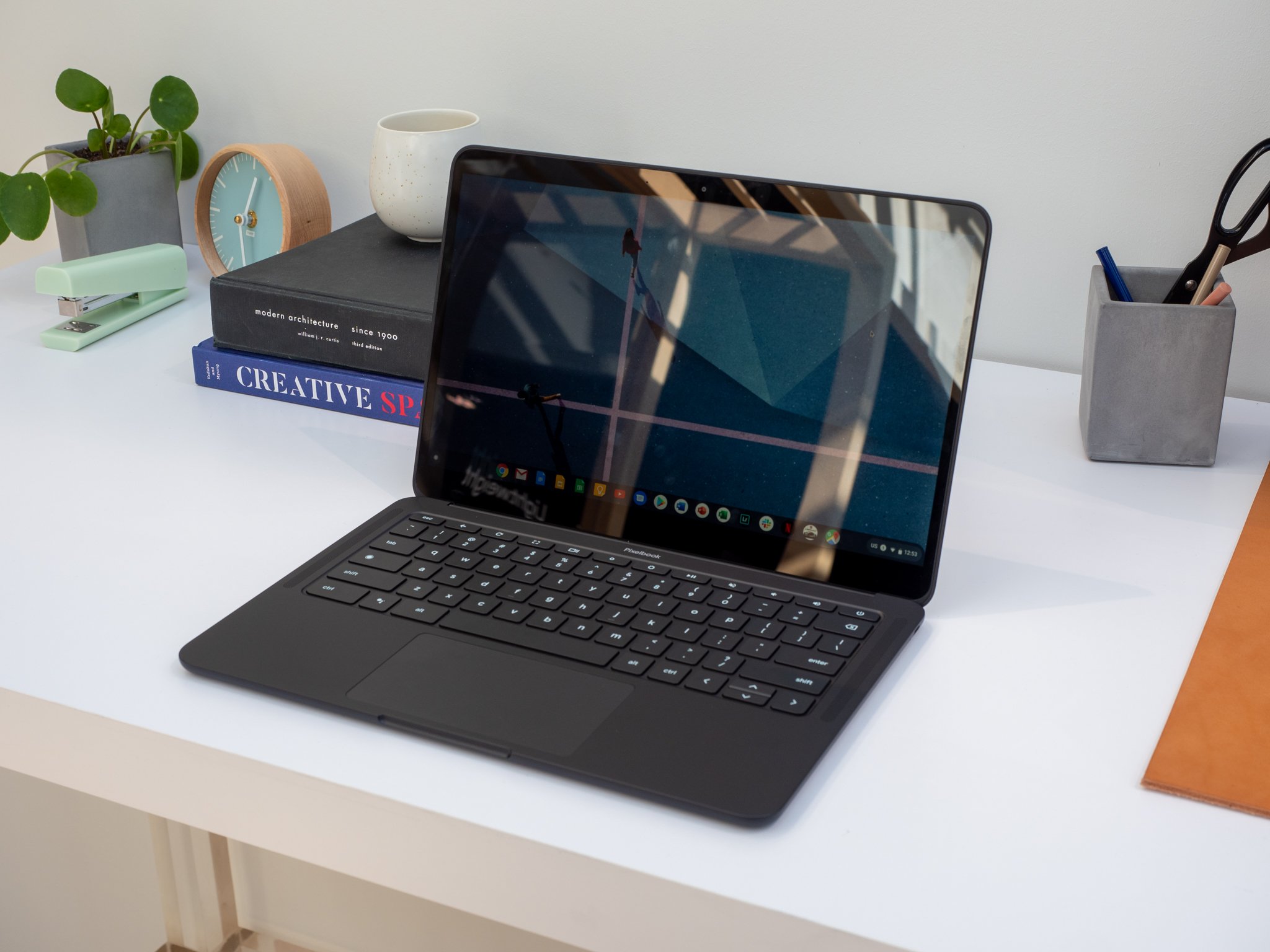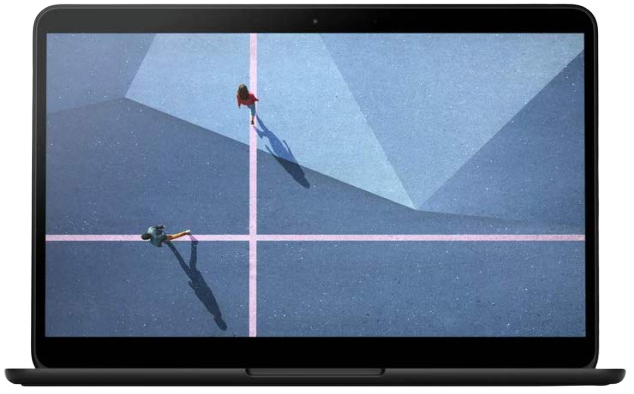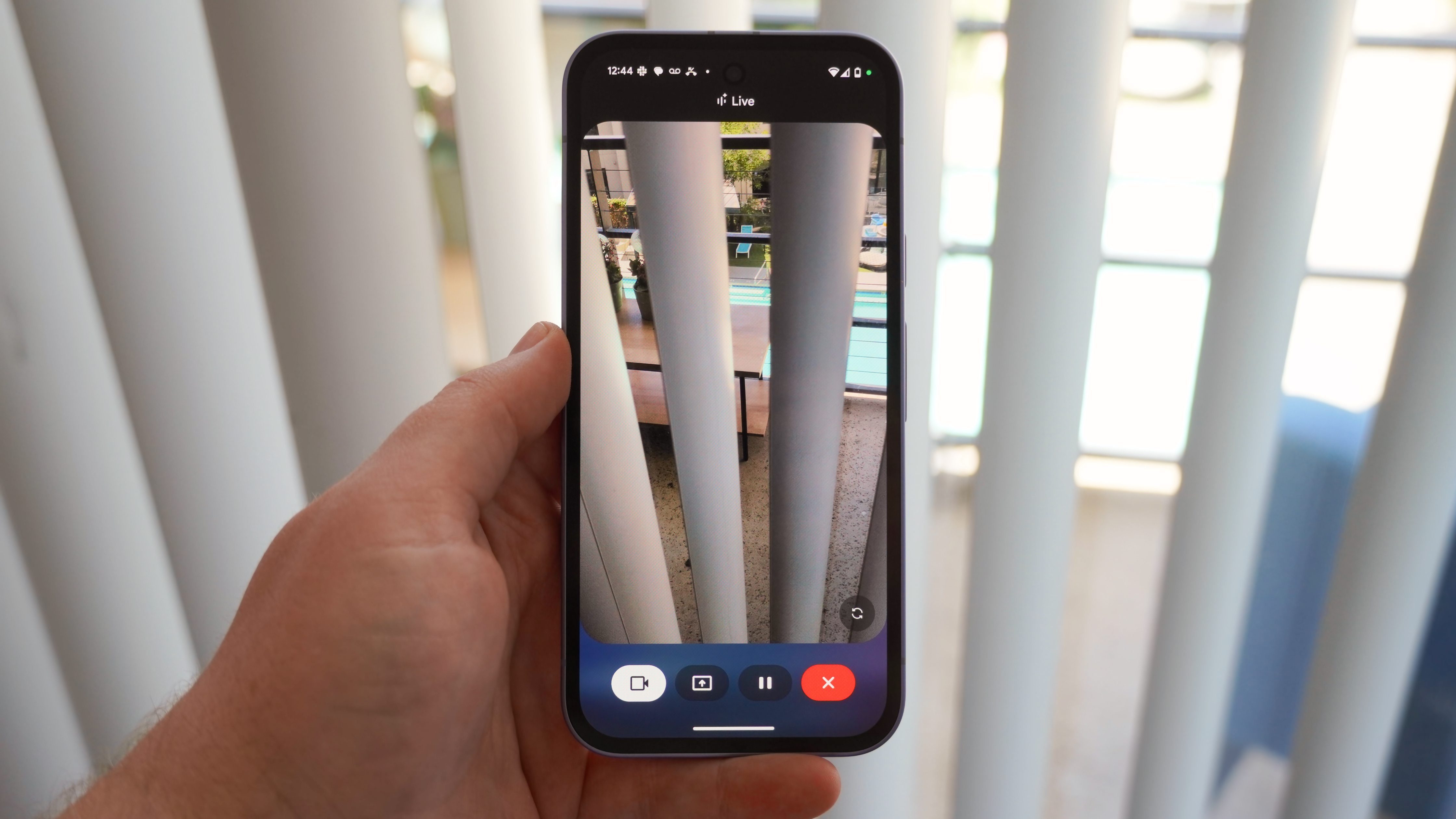Android Central Verdict
Bottom line: It's expensive and has no support for the Pixelbook Pen. It also doesn't flip around so you can use it as a tablet. But it is an extremely well-built Chromebook that will make you hate the keyboard and trackpad of every other model released in 2019 — and those are the things you actually touch when you use a laptop.
Pros
- +
Clean, simple design
- +
Light and portable
- +
Excellent keyboard
- +
Excellent trackpad
- +
Great battery life
Cons
- -
The price
- -
No Pixelbook Pen support
- -
No tablet mode
Why you can trust Android Central
I was very lukewarm on the Pixelbook Go at first. Prior to launch, the leaks had me skeptical about the idea of it replacing the Pixelbook — which I still think is one of the best laptops ever produced — and once Google showed it off I was certain instead of just skeptical.
This is mostly because of the big shoes the original Pixelbook left to fill and the Pixelbook Go was missing some key features if it wanted to fill them. There is no support for the Pixelbook Pen (which is still a silly name). There are no 180-degree style hinges to allow it to be used as a tablet. This is not how you make a better "next-gen" product.
Thankfully, the Pixelbook Go is not the Pixelbook replacement (I would expect to see that next year if I were a betting man) and is instead a new model in Google's Chromebook line that is built for folks who don't want to spend $1,000 or more for a Pixelbook or want something to use on the go that's light and easy to carry.
And as it turns out, it's also great for people who just like to use it on the back porch when it's sunny, too.
What I love about the Pixelbook Go
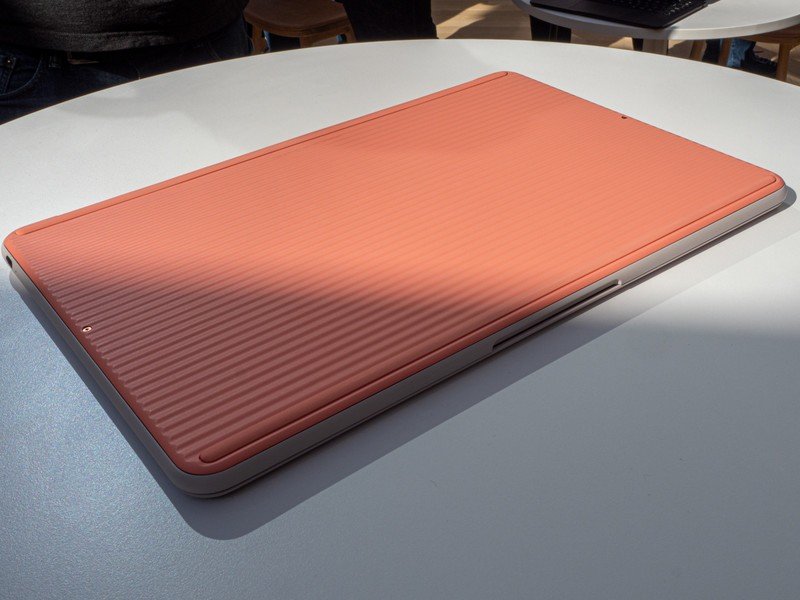
| Specs | Pixelbook Go |
|---|---|
| Display | 13.3 inches, 1080p16:9 |
| CPU | Intel Core i5-8220Y1.3GHz boost to 3.9Ghz |
| RAM | 8GB |
| Camera | 2MP1080p |
| Ports | 2x USB-C |
| Dimensions | 12.2 x 8.1 x 0.5 inches |
| Weight | 2.4 lbs |
I use a Chromebook for almost everything. I have a gaming PC for the times I need to scratch that particular itch and an overpriced Macbook Pro that I don't think I've touched in over a year, but neither offers what a Chromebook offers me: simplicity, speed, and functionality. When you hear someone saying Chromebooks are just expensive web browsers, point them in my direction if they need proof that they're wrong.
I've also used a lot of Chromebooks over the years and found that I only ever use them one way — like a laptop perched on my knees or at a table somewhere. When it comes to using a Chromebook laptop as a laptop, the Pixelbook Go does it better than any I have ever used.
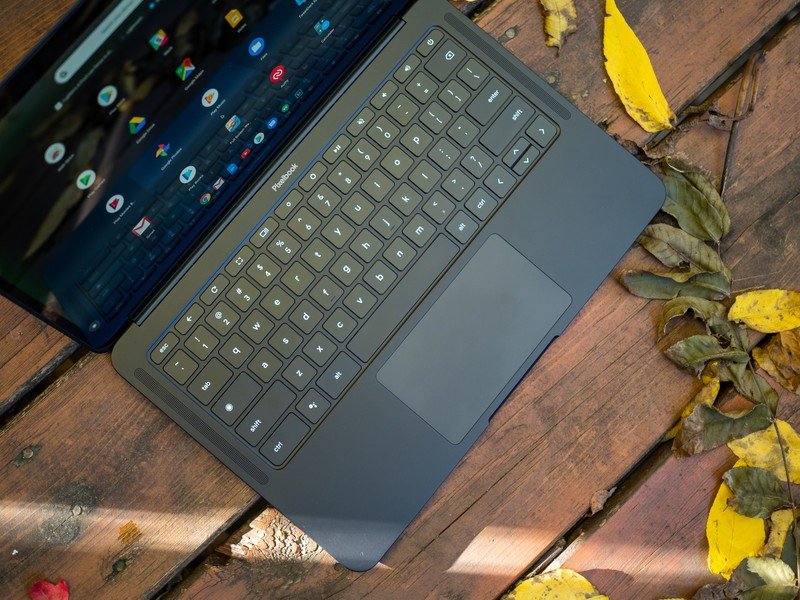
The build quality is downright superb. You hear this trotted out for most any premium-priced product, but I'm serious. The fancy magnesium shell makes for a product that feels great to hold, the fit and finish is nearly perfect, and even where there must be a gap, tolerances are tight and you can tell you're holding something that a designer is proud of.
The Pixelbook Go is the best Chromebook laptop — as in on your lap — I've ever used.
What really does it for me are the keyboard and trackpad. Google has a history of making Chromebooks with great keyboards and trackpads, but with the Pixelbook Go it has outdone itself. The keys provide just enough travel and are just stiff enough to feel responsive under your fingers. Combine this with the perfect (for me, anyway) sweet spot where the key itself actuates and it makes typing enjoyable. You almost get the same satisfaction as you would from a loud clackity mechanical keyboard and this alone makes it better than any other Chromebook on the market to me.
Once you've used the Pixelbook Go's keyboard and trackpad, you'll never forget how good they can be.
The trackpad follows step here and it's also a big improvement over the original Pixelbook. It's 20% larger, and that means more room for more fingers to do more gestures and swipe, scroll, tap and everything else. It's covered with smooth glass, of course, and is super responsive. I've said that the original Pixelbook trackpad was as good as any Apple product; the trackpad on the Pixelbook Go is better than any Apple product. And that's a bold statement I'll stand behind until Apple can outdo itself.
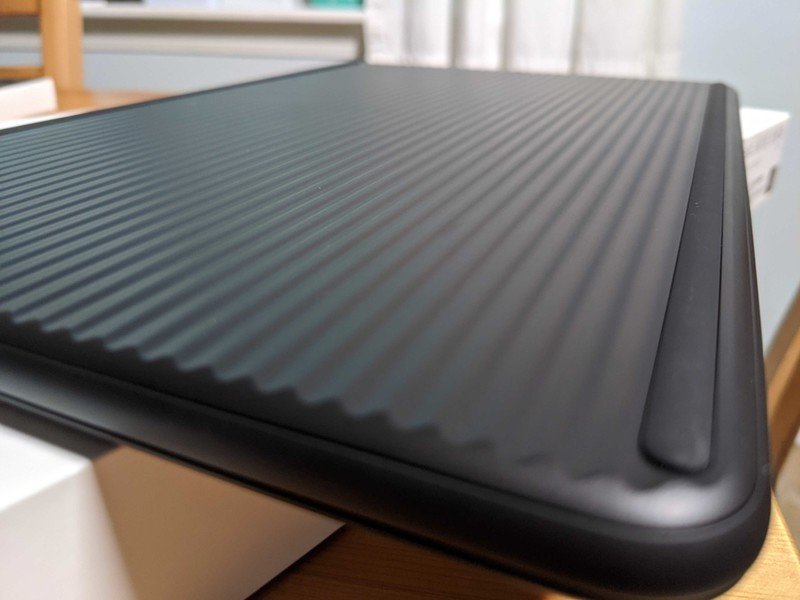
The thing I love best about the Pixelbook Go is pretty niche, and wasn't a design decision as much as it was a stroke of good fortune — the ribbed bottom makes it perfect for anyone in a wheelchair.
Most laptops are smooth across the bottom with small rubber feet in the corners to provide a bit of airflow while on any flat surface. The Pixelbook Go has a ribbed bottom that makes it easy to grip and carry in one hand whether the laptop is closed or open. That's cool; we've all carried a laptop from one room or office to another.
A side effect of all this is that it doesn't want to slide down off of my knees while I'm using it in my lap. Sometimes, life in a wheelchair really sucks. Having a products I love using made even better makes me happy.
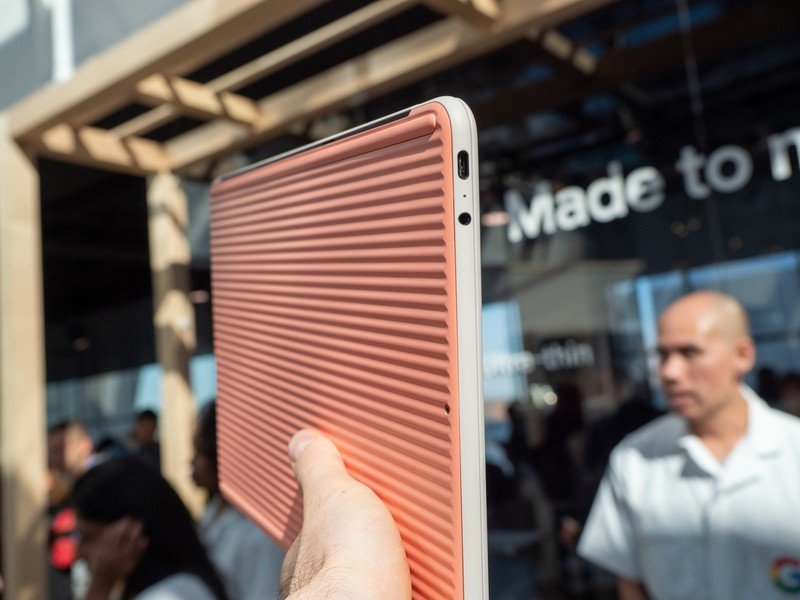
In short, Google finally did what some people have wanted it to do since the very first Chromebook Pixel — nail the fundamentals while remembering to add some special touches of its own.
What I don't like about the Pixelbook Go
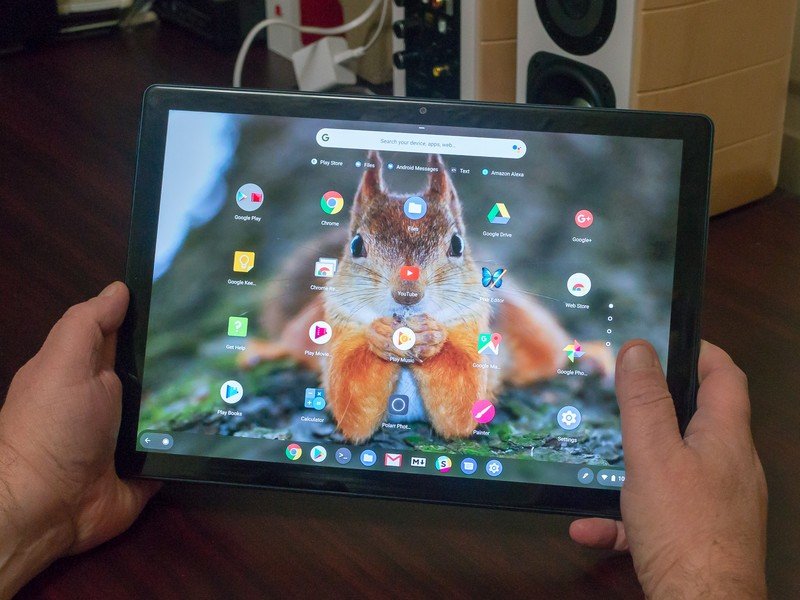
While I could go on about how much I love this little gadget for another 10 paragraphs, there are still several things I can't quite accept about Google's decision-making.
The first of them is the lack of any sort of tablet mode. I get that the original Pixelbook is still the developer tool where tablet apps can be built and tweaked and that Google even has a Pixel Slate that nobody except a hardcore Chrome OS fan should buy, but the Pixelbook Go is also a dream device for developers. Powerful innards, light and sturdy design, and a keyboard that is lovely to write code with. I'll never use a Chromebook in tablet mode. But I'm not everyone.
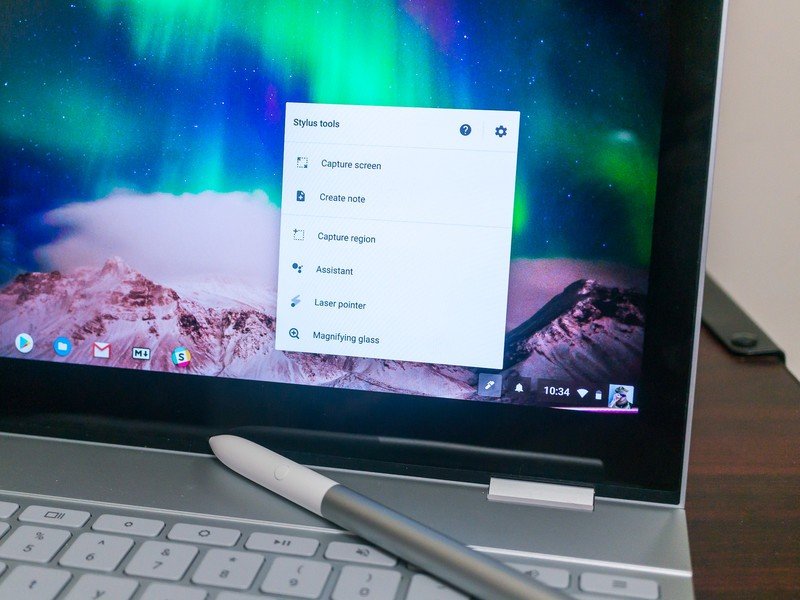
In the same vein, the lack of support for the Pixelbook Pen is puzzling. I understand that said support would increase the price (which we'll get to in a moment) but the competition — the iPad Pro and the Microsoft Surface — both make a very big deal about specialized stylus support. And hey, it's kind of fun to circle random things on the screen and have Assistant try to tell me what they are. With an already inflated price, the addition of Pen support seems like it should have been a no-brainer.
I really miss a 3:2 aspect ratio display. Pixelbook Go 2, maybe?
I'm also not really keen on the display aspect ratio. It's the standard 16:9 you would find on almost every other laptop in existence, but the 3:2 ratio of previous Google Chromebooks spoiled me. The web is best at 3:2, as is working in Google Docs, Android Studio, and almost everything else. And I wish the median model had a higher resolution screen, even though the 1080p display on my model is crisp and the colors are great. Call me spoiled, I can't argue.
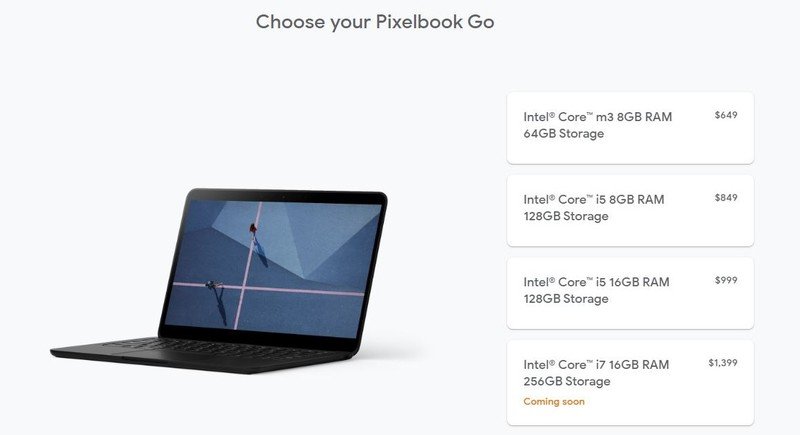
Finally, the elephant in the room — the Pixelbook Go's pricing. I'm not going to say I think it's too expensive, but I can take issue with how Google claims it's "affordable."
A lot of companies make affordable Chromebooks. Nobody thinks google is one of them.
That word means a lot of different things to different people, but most of us would equate affordable with "budget", and the Pixelbook Go is decidedly not a budget Chromebook. Sure, it's cheap by Google standards (disclaimer: I paid almost $1,700 for an LTE-powered Chromebook Pixel in 2013) but that doesn't mean it's priced comparably to other good Chromebooks from Acer, Lenovo, HP, or ASUS.
Google poisoned the well a bit here and, inevitably, these cheaper models were touted and a better buy than Google's budget Chromebook. For a budget Chromebook, they are. But the Pixelbook Go is not a budget Chromebook and will never be. It's a great $700 Chromebook, and the best one I think you can buy if you can spend more than $400.
Should you buy the Pixelbook Go?
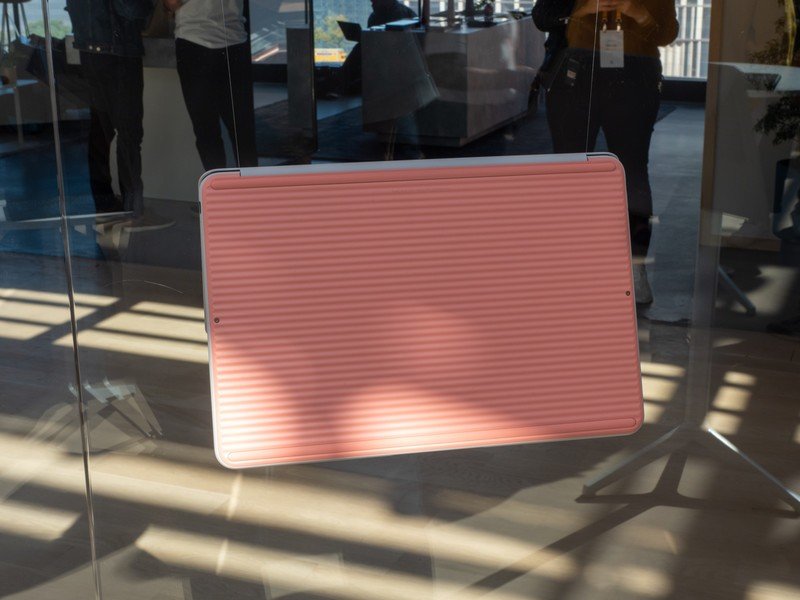
Maybe. And I hate answering this question with a maybe as much as you hate hearing it, but it all depends on why you're buying a Chromebook and what you plan to do with it.
4 out of 5
The Pixelbook Go is worth every penny for anyone who is going to use it for work or school full time. I've used the best Chromebooks from every manufacturer and can say that with confidence: if you need something to fill in spreadsheets or write a term paper, this is the Chromebook you want.
If you want a cheap laptop you can grab when you need to look something up, play a game, or just surf the web then you're wasting money on this one. You don't need ribbed bottoms or oh-so-perfect keystrokes when you're buying a pack of underwear from Amazon or watching a show with the kids. And you shouldn't spend the money on one.

Jerry is an amateur woodworker and struggling shade tree mechanic. There's nothing he can't take apart, but many things he can't reassemble. You'll find him writing and speaking his loud opinion on Android Central and occasionally on Threads.
